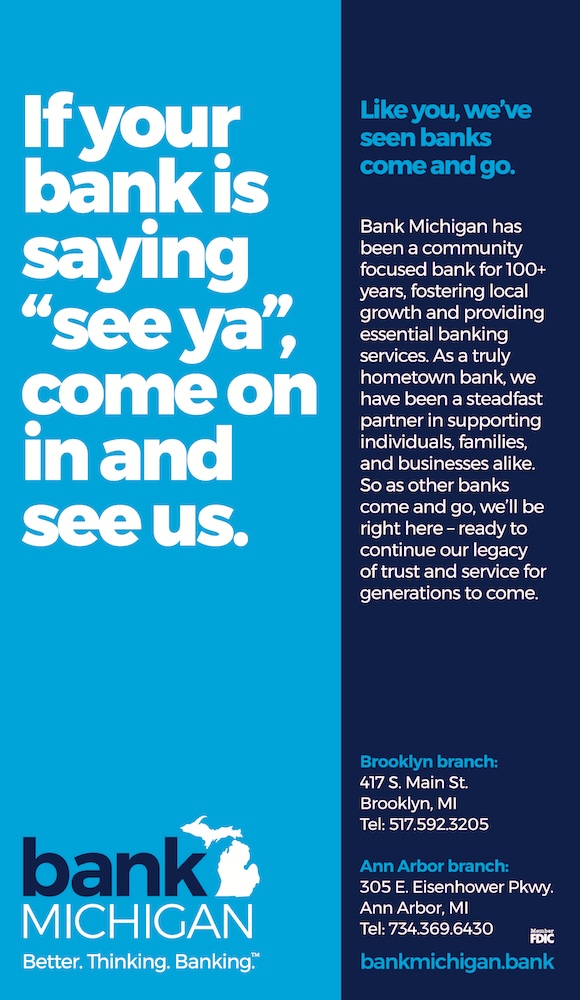Delta launches high-tech screen at Detroit Metro with personal flight data

Customers use “Parallel reality” technology to get a personalized screen telling them their gate location, the length of their walk, and other flight information.
by Julia Forrest (Bridge Michigan)
Kathy Seurynck arrived Thursday at Detroit Metropolitan Wayne County Airport ready to board her flight to Sedona — but first, she piloted new technology in the Delta concourse that promises to change the way she and other travelers navigate airports of the future.
The technology, dubbed Parallel Reality, was launched at the airport June 29 by Delta Air Lines and Misapplied Sciences, a technology start-up, and allows up to 100 airport travelers to look at the same digital flight screen, which gives each traveler, alone, a summary of their personal travel information.
“It’s really neat to look up and see,” said Seurynck of Plymouth. “I never know the gate. So it’s nice to have the gate and how long it takes to walk there and things.”
Located near the beginning of the Delta concourse, travelers can opt to try it out by showing a boarding pass or using Delta’s digital identity program at a kiosk. Pixels in the display project millions of light rays that can be directed to a specific person. Motion sensors follow travelers as they move so that, no matter where they stand, they can see their flight data, but nobody else’s.
There is only one board with this technology at the airport, so it’s of limited use to the thousands of people who pass through Detroit Metro every day. It’s just an experiment — a pilot — but the companies envision the technology will eventually be commonplace across airports, guiding travelers from security checkpoint to gate.
Parallel Reality does not store personal data or utilize facial recognition or biometrics while the consumer is viewing the display, according to Albert Ng, CEO of Misapplied Sciences.
Hussein Berry, vice president of Airport Operations at Detroit Metro, said the technology will help customers travel more efficiently and foster a more inclusive travel experience since it displays information in a person’s preferred language.
“I typically call it mind-blowing, you really can’t understand it until you experience it,” Berry said. “It’s streamlined for the travelers, allows them to really engage with it and (is) personalized for them.”
Berry said Detroit was chosen because it’s one of the largest Delta hubs and has a “centralized kind of corridor, grabbing all our local customers coming through or connecting customers.” Detroit is also where Delta last year launched its digital identity experience, which allows customers to use facial recognition technology and passport information to check in and pass security.
Berry said that while the “parallel reality” technology is in its beta test phase, he expects it to take off.
“It could rapidly expand,” Berry said. “What’s important for us to do is start here … and understand exactly what the technology gives our customers, employees … The opportunities are limitless. But right now, the idea is let’s understand what it means for us here.”
Ng told Bridge Michigan the technology may be “applicable to a lot of different venues” including shopping malls, stadiums, hotels, resorts and other crowded public spaces.
“The whole goal of parallel reality is to create a very magical and seamless experience for everybody going through these crowded environments,” Ng said. “Parallel reality is technology that’s not 10 to 20 years in the future. It is here, it is applicable right now immediately, to everyone who wants to engage with it.”
Such technology has some researchers concerned, however, about the implications for consumer privacy.
Sophia Brueckner, co-director of the Center for Ethics, Society and Computing at the University of Michigan, said that while she sees the airport board being tested in a “harmless way” with optional participation among curious travelers, she predicted “in the near future, it will likely not be optional and it will be used for both surveillance of people in the airport” as well as for personalized commercial advertising once it expands to other venues.
“Consumers need to be aware of the implications of these technologies,” Brueckner said. “Instead of (information) just being contained to your browser, it’s going to be everywhere surrounding you if these displays exist and not only would this be really creepy and intrusive … we will end up becoming isolated from each other in our parallel realities.”
While Delta and Misapplied Sciences say Parallel Reality does not store any travelers’ data, Brueckner said consumers should “always be skeptical of giving up any data” and “opting into anything that is tracking you in any way.”
“We get emails all the time that the terms of services changed and we don’t read those,” Brueckner said. “You should always imagine whatever technology you opt into, how it’s going to be used to make money off of you.”
But Terrance Tucker, a frequent traveler who used the Parallel Reality technology for the first time Thursday, said he had no privacy concerns and “whatever makes the process (of flying) easier, I’m for.”
Seurynck, the traveler from Plymouth, said she believes most of her information has already been made readily available via other technologies.
“They have all of our information with phones anyway,” Seurynck said. “I think it’s good.”








You must be logged in to post a comment Login